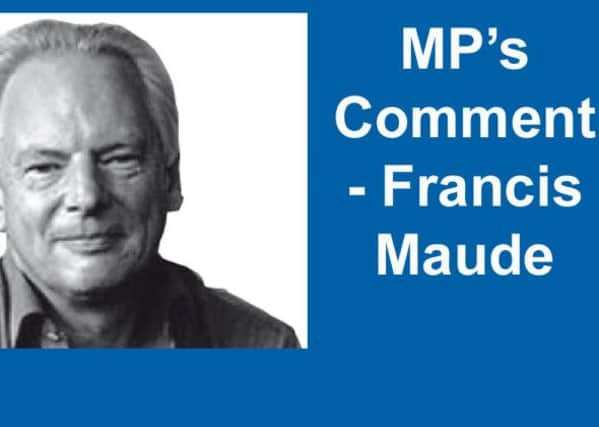Francis Maude: Open and honest government culture


Honesty can be really uncomfortable. That’s as true in politics and government as anywhere else. All oppositions favour transparency. And all governments favour it for the first 12 months while all they’re exposing what their predecessors have done. The real test comes after that. And the Coalition government passed that test. We now publish more Government data than any other government and are recognised as the world leader for open Government data.
This serves three purposes. First, it makes government more accountable. Week by week not just at election time. We publish all government spending over £25,000, so taxpayers can see how their money is being spent. We publish the salaries of senior public officials and organograms, so the public can see how government works.
Advertisement
Hide AdAdvertisement
Hide AdSecond, it enables people to make more informed choices about public services. Much more detailed data about the outcomes achieved by schools, hospitals and GP practices means people can make their own choices about which ones they use on the basis of evidence rather than hearsay.
Third, it supports growth and jobs. The raw materials for the first industrial revolution were coal, steel and iron. The raw material for the 21st century is data. Data that can be mixed, matched and mined to create value. There are new enterprises springing up everywhere based on the creative use of data. Many of these are commercial profit-making businesses that generate economic growth. But many are social enterprises that use data to create social value and growth.
And in government we need to build the habit of being open when things don’t go well. This isn’t easy. The whole blame culture, where too often Parliament and the media gleefully exploit admissions of failure, militates heavily against it.
But the truth is that organisations learn as least as much from the things that don’t work as they do from the things that do.
Advertisement
Hide AdAdvertisement
Hide AdSo we now publish the ratings on government’s major projects. Very uncomfortable. But it’s improving our performance. When we discovered that the Ministry of Justice was being overcharged for some contracts Chris Grayling immediately went to Parliament to volunteer full disclosure.
This starts to rebuild trust. If we proactively disclose things that are going badly, then there’s just a chance that people may believe us when we say that things are going well.
Then openness becomes our friend. But we need to be bold and forthright.